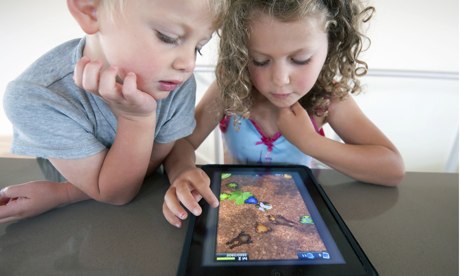
Small private hospital in Central London, residential rehab courses for screen addiction for children, the youngest patient so far, four years old … I know what you're thinking: either that we're going to hell in a handcart as we fail to bring up our young to be the least bit interested in the actual world, or that some parents have a lot more money than sense.
Dr Richard Graham can help you through these prejudices, which have a certain addictiveness of their own. Graham, technology addiction lead at the Capio Nightingale hospital and consultant adolescent psychiatrist at the Tavistock, remembers the programme's beginnings in 2009. Alongside colleagues, he was constructing models of distress based on the behaviour they were seeing that seemed to have properties of addiction – kids spending six or seven hours a day on Xboxes.
"The real wake-up call for me was when people moved on to games like Call of Duty and World of Warcraft, where social networking converged with game playing," says Graham. "It made no sense to me that they were moving from sophisticated game consoles to PCs and laptops. They were playing 10, 12, 14 hours a day. It became far more absorbing and difficult to withdraw from.
"I feel very stupid looking back upon what is now obvious: which is that if you converge gaming with peer coercion, you end up merging gang processes with competitive game playing." Which, you can tell just by the tone of his voice, is a little like merging ephedrine with hydrogen chloride (crystal meth).
The symptoms – you can rank your own children or spouse on this list, if you haven't got enough to argue about – are all recognisable from other addictions: how does your internet use affect the rest of your life and mind? How much do you crave it? Do you deny it or lie about it? And yet the thing itself – these games that set the social mind and the competitive spirit alight simultaneously – are unlike anything you would know about the world of toxins.
Up close, from medics to parents to gaming experts, everybody frets, but nobody is entirely sure they're actually bad for you. "I'm really torn," said Catherine Loveday, neuropsychologist and mother of two sons, one of whom is heavily into Minecraft. "On one level he's really learned an awful lot – he's very creative if you can get him off the screen and on to Lego, he's really using what he's learned. He knows about elements, he'll know what a sapphire is, all sorts of random things, he'll know what they are because he uses them to build in these games."
Kate McEwan, who has a nine-year-old son, agrees: "Some of the stuff they do is so incredibly creative. He's learned how to make these amazing houses, over several stories, and then he has a lift which is actually a waterfall. I'm not saying it's a good thing …" She trails off. We both, plainly, find this quite impressive.
Gaming expert Tom Chatfield described in a TED lecture how these processes had become so engrossing. The game itself is monitoring the intensity of reward among the players ("One billion points of data!" he says at one point, in triumph) and this has led to incentives so precisely calibrated that, well, to say it was almost perfect would be a supposition of mine.
But even without the improvements that the future will inevitably deliver, it's hard to see how the real world of imperfect rewards can compete. Graham often uses the word "sumptuous": "The quality of screens, the richness of the colours, the speed of the process – all of those things are very appealing to a child. Half a billion on the planet are playing Candy Crush to a considerable degree." (He talks about it so wistfully that I suggest to him he may have his own weakness for it. "Well, I'm only on level seven," he says, modestly.)
Besides complexity there is, of course, fellowship: one person's "gang-processes" are another person's friendships. Louise Baxter has three children of seven, nine and 11. The oldest two, who are boys, play Minecraft and, she says, "Skype their friends while they're playing. The game itself is interactive, they're in there with their friends as well. It's not like they sit on their own in a darkened room."
These two impulses – to create complex environments, competitively, on the one hand, and to interact with people, on the other – exist in varying proportions in gamers who exhibit exactly the same compulsion to play. Graham describes seeing two patients "playing the same game, both struggling to speak, both missing school, both playing until three in the morning. Success for one was entirely about dominating the field. For the other, it was almost exclusively social, he wanted to get back to his friends."
Treatment is the same, in any case. If you want to pre-empt your children turning into adolescents who can't control their gaming impulses, you could try a screen sabbath once a week. And you should also limit your own screen time. But once the desire is fierce, they have to detox. "In tandem with diet and exercise, this seemed to improve the mood so much that on the rare occasions where I had used medications, antidepressants, I felt rather guilty about it."

